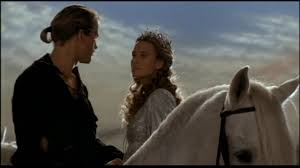I sold four Kindle copies of my poetry book for $0.99 this last time, and one other person downloaded and read a KU (Kindle Unlimited) copy. It's not much, but it is still encouraging. The first couple times I tried to give "Un-Clenched Emotion" away for free, there were no takers. Then I gave away 1, then 6, then 70! I tried some Amazon Advertising this time and wasn't very successful, but that's okay, marketing is a learning process!
Of course, I use this blog to market. I'm not sure how successful it is. I do get a lot of traffic that you can see by looking at my counter. I'm not sure how I did it! Just showing up helps. I don't have much interaction, only 4 comments and no subscribers' through blogger, but people are looking and that makes me happy. Then I do have some subscribers on Goodreads that I just found out about. When I post my new blog posts on Facebook, I usually get a consistent 7 or 8 people who look. (My blog has a reports section, that's how I know). I want to thank all of you who do look at my writings! I have over 1000 X (formerly twitter) followers, but I don't get many looks from there. I'm working on being more active on X, there are a lot of authors helping authors on that platform. I'm not sure how many followers that aren't family or people I know on Instagram. It's a big sized number I think, but not so much as X. I don't get that much interaction with Instagram yet either. The Goodreads author program is also free and there are many groups you can participate in. I belong to some and have gotten a few reviews from there. There are a few people who also marked "Un-Clenched Emotion" as want to read. So Goodreads is also a good marketing platform. The cool thing is I don't have to pay anything for these platforms.
There's a couple of other of things that aren't costly that I could do to market my book. I could create a separate Facebook page and invite those interested. It seems like so much work though, added to this. And then I could attempt to create a newsletter, but that seems like A Lot of work. You may have noticed, I'm not extremely consistent in simply writing this blog. It takes awhile for me to come up with a subject to talk about and sometimes I just don't feel like doing it. If I make a newsletter, it's got to be consistent. And then, of course, I have no idea how to get subscribers. So there are a lot of things I do to market my book, and somethings I could be doing but don't.



















.jpg)










